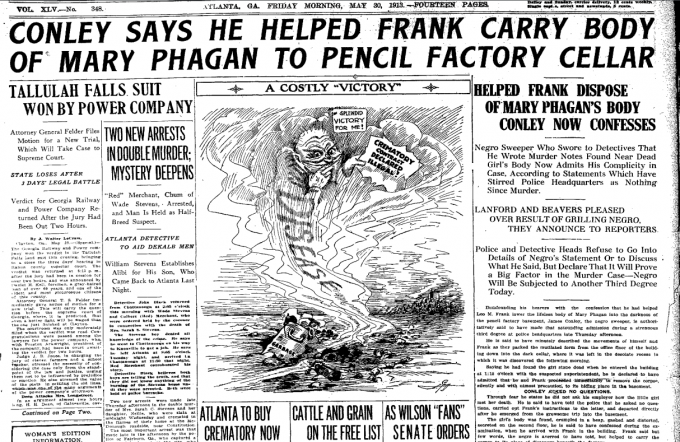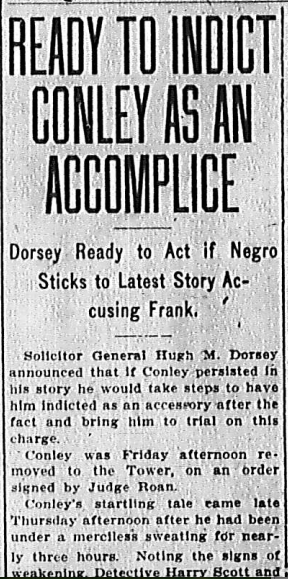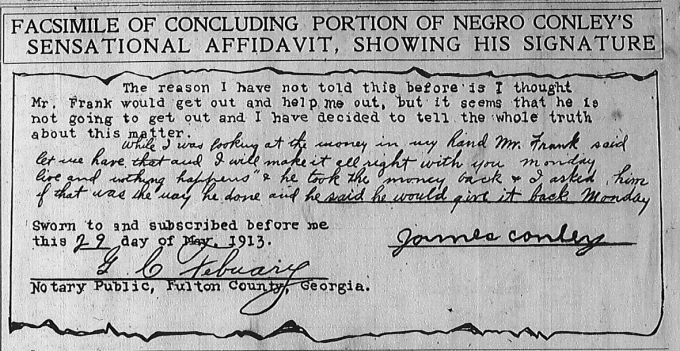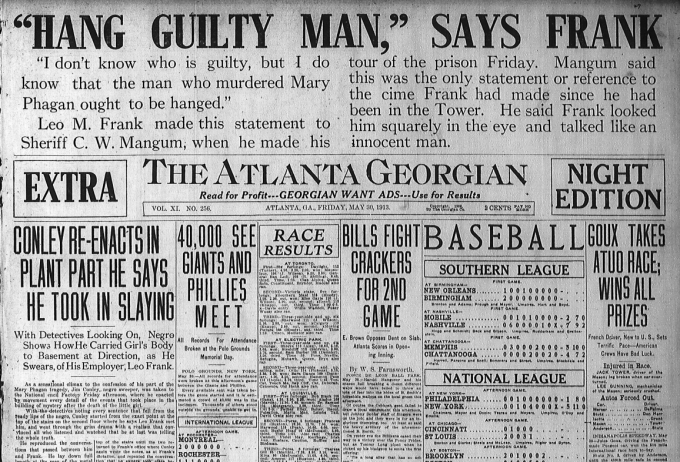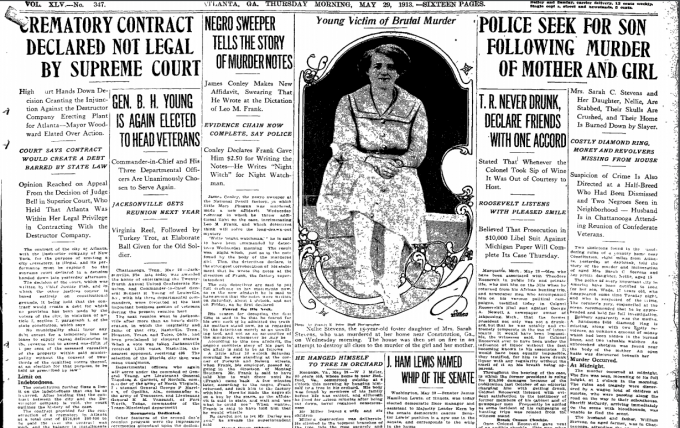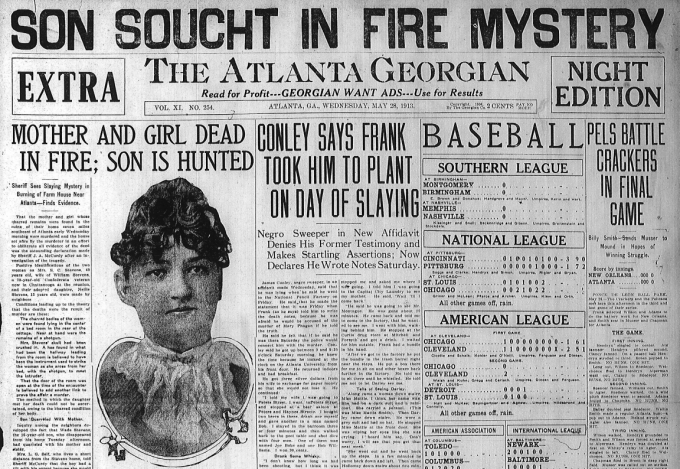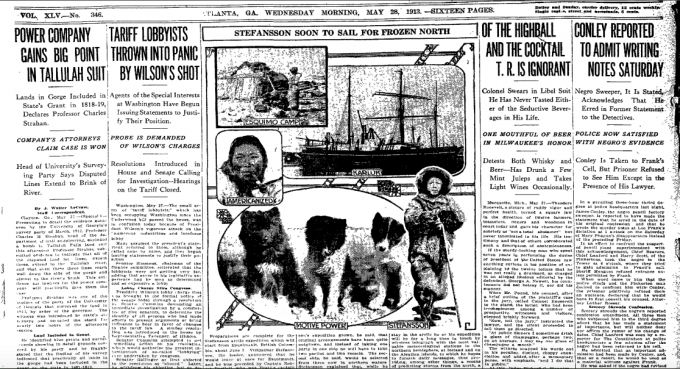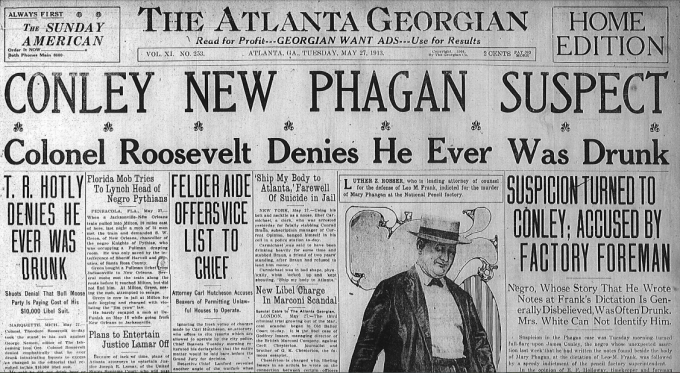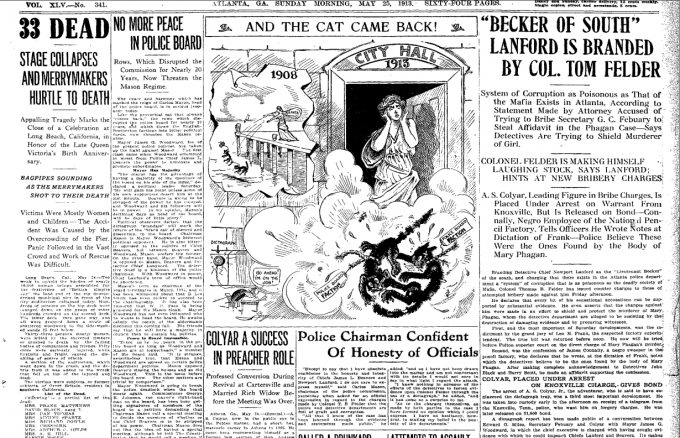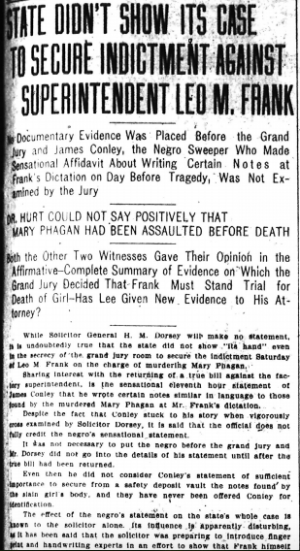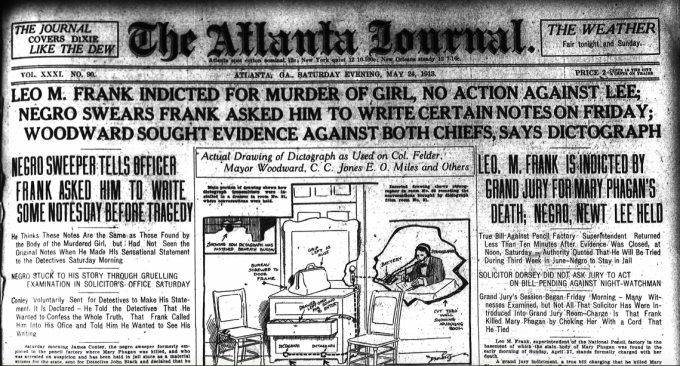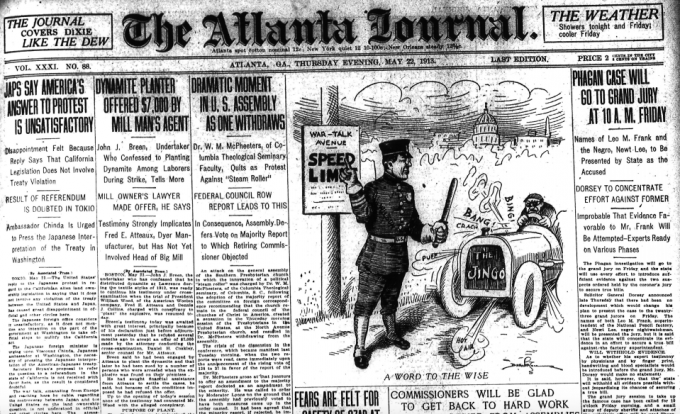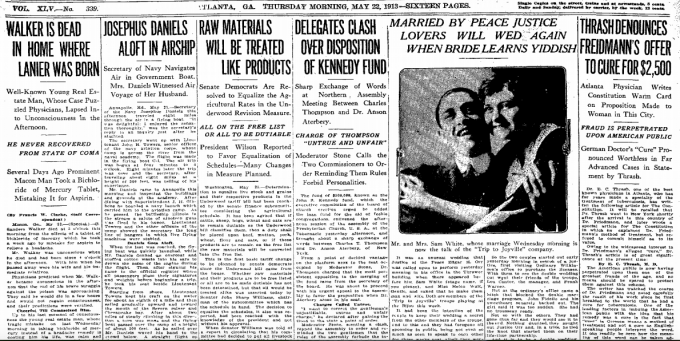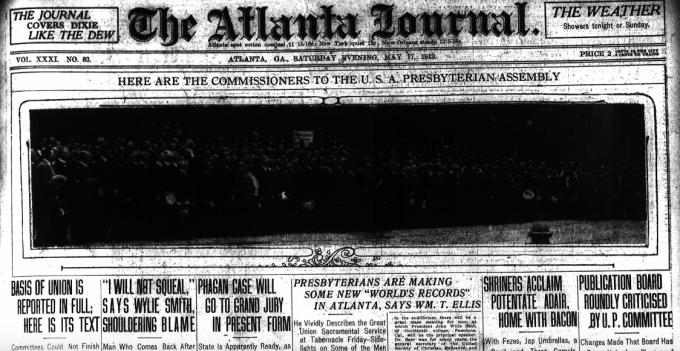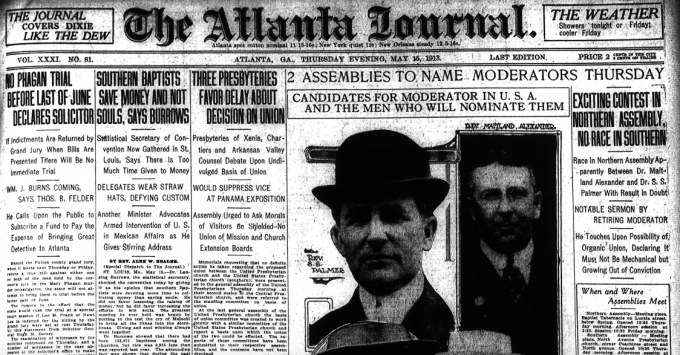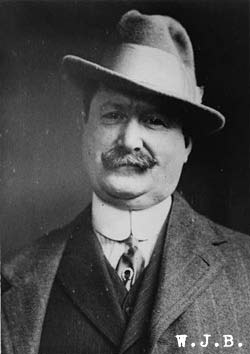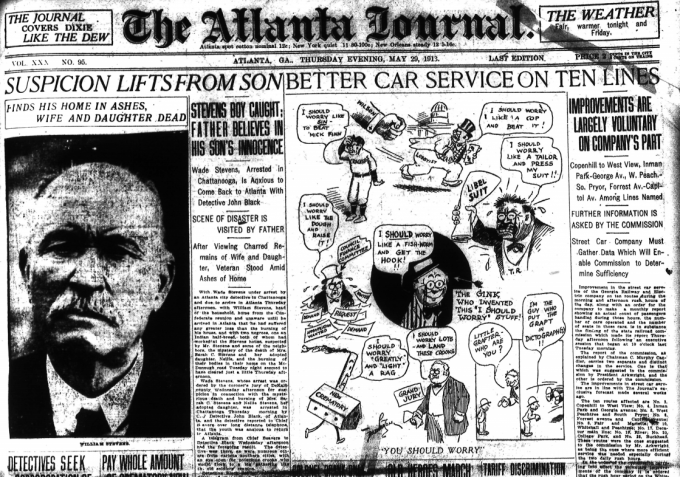
Another in our series of new transcriptions of contemporary articles on the Leo Frank case.
Atlanta Journal
Thursday, May 29th, 1913
They Declare That They Are Anxious to Get at the Truth of the Murder Case, Regardless of Who Is Guilty
Little if any credence is placed by the city detectives in the theory of the officials and employes of the National Pencil factory that Mary Phagan was killed by James Conley, the newro [sic] sweeper, and that his motive was robbery.
The detectives have accepted as true Conley’s second affidavit, in which he swears that he wrote the notes found by Mary Phagan’s body, and that he did so about 1 o’clock on the day of the murder, at the dictation of Superintendent Leo M. [F]rank, who is now under indictment by the grand jury.
However, they are somewhat puzzled by the discrepancies in the time of certain occurrences as sworn by Conley and testified at the coroner’s inquest by other witnesses.
Harry Scott, the Pinkerton detective who is working with the city detectives on the Phagan murder case and who developed the fact that Conley could write, notwithstanding his denials, declared that the shortest route to a complete solution of the mystery is to bring the negro Conley and Superintendent Frank face to face. He says the negro insists that he is anxious and willing to confront Mr. Frank with his story, and that if Mr. Frank and his attorneys agree, they (Conley and Mr. [F]rank) will be brought together to discuss the truth or falsity of the negro’s declarations. Continue Reading →

